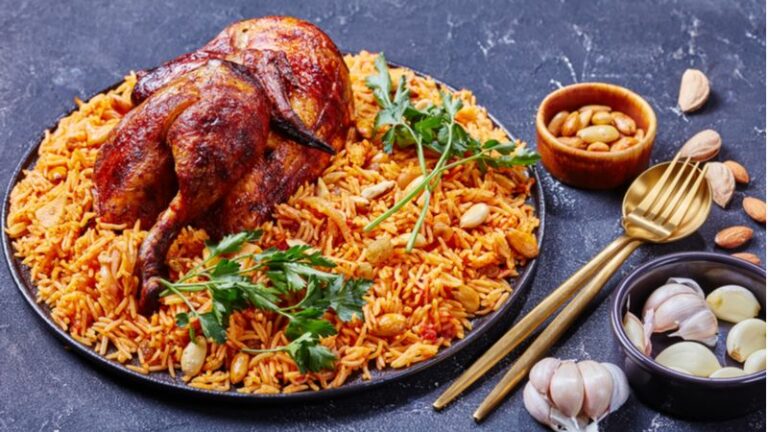Introduction: Dietary Restrictions in Oman
As the world becomes more health-conscious, the number of people with dietary restrictions is growing. Whether it is due to allergies or personal choices, many people are looking for food options that cater to their specific needs. Oman, a country known for its rich and diverse cuisine, is also adapting to these dietary restrictions. In this article, we will explore some of the Omani dishes that are suitable for those with gluten-free, dairy-free, and vegan diets.
Traditional Omani Cuisine: Overview
Omani cuisine is a blend of Arabic and Indian flavors with influences from East Africa, Persia, and Southeast Asia. Rice, meat, and seafood are staples in Omani dishes, and spices like turmeric, saffron, and cumin are commonly used. Traditional Omani cuisine also features a variety of bread, including khoobz, a flatbread made with wheat flour, and raqaq, a paper-thin bread served with honey or cheese. While traditional Omani cuisine may not be suitable for those with dietary restrictions, there are many dishes that can be adapted to cater to specific needs.
Gluten-Free Omani Dishes: Options
For those with gluten sensitivities, Omani cuisine offers a range of gluten-free options. One such option is the Omani chicken stew, also known as madrouba. Made with chicken, rice, and a variety of spices, this dish is naturally gluten-free. Another gluten-free option is the Omani grilled fish, which is marinated in lemon juice and spices and grilled to perfection. Additionally, Omani salads like fattoush and tabbouleh are also gluten-free and make for a great side dish.
Dairy-Free Omani Dishes: Options
Dairy-free options in Omani cuisine may be harder to come by, as many dishes use yogurt or cheese as a key ingredient. However, there are still some options for those with dairy restrictions. One such dish is shuwa, a slow-cooked lamb that is marinated in a variety of spices and wrapped in banana leaves. Another option is the Omani chicken biryani, which is made with a variety of spices and rice and can be made without the use of yogurt. Additionally, many Omani soups like shorba and harira are made without dairy and can be enjoyed by those with dairy restrictions.
Vegan Omani Dishes: Choices
For those following a vegan diet, Omani cuisine also offers a variety of options. One such option is the Omani lentil soup, which is made with lentils, vegetables, and spices. Another vegan option is the Omani vegetable curry, which is made with a variety of vegetables and spices and can be served with rice or bread. Additionally, Omani salads like the cucumber and tomato salad are also vegan and make for a refreshing side dish.
Conclusion: Enjoying Omani Cuisine with Dietary Restrictions
While Omani cuisine may not be known for catering to dietary restrictions, there are still many options available for those with gluten-free, dairy-free, and vegan diets. From traditional dishes like madrouba and shuwa to modern options like vegetable curries and salads, Omani cuisine offers a range of options for those with dietary restrictions. So, next time you visit Oman, don’t hesitate to try out some of these delicious dishes that cater to your dietary needs.

